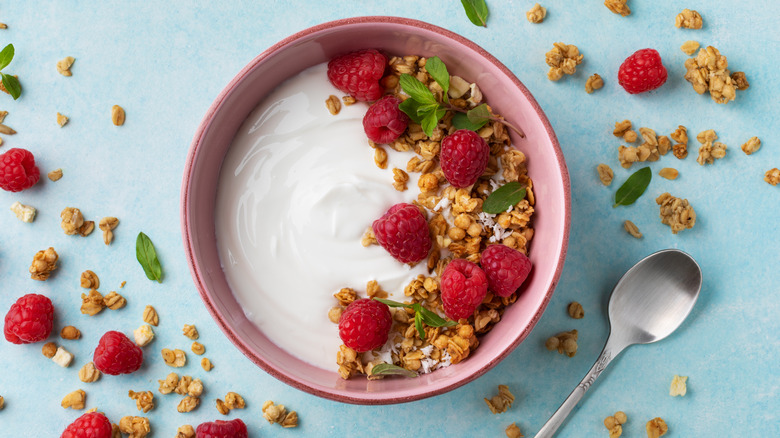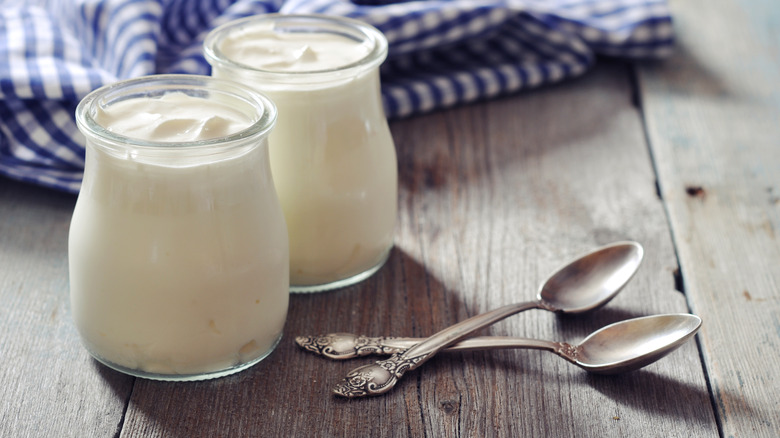An Israeli Food Company Made Yogurt With Cultivated Cells
Food produced from cultivated cells has been making strides and headlines lately. If the phrase "cultivated cells" doesn't ring a bell, you may be familiar with the meats that have been made with them. According to the Good Food Institute, cultivated meat comes from animal cells. However, unlike the traditional protein source, these cells were grown separately from an animal's body. The institute claims that "the resulting meat looks, tastes, and cooks just like conventional meat." Such products may have the potential to reduce the strain on the environment caused by traditional meat production as well as reduce the use of antibiotics.
Back in July one company SCiFi Foods made progress in making lab-grown beef more affordable (via Food Dive). And just a few days ago, the FDA gave the green light for a producer of cultivated chicken to continue making strides to get approval to go to the consumer market. But meat is not the only animal product being replicated by technology – enter the first-ever cultivated yogurt, which Israeli food tech company Wilk created, according to Food Dive. The product begins with cultivated mammary cells of cows or people, which are used to create milk. That milk has been used to produce yogurt.
The potential for cultivated dairy products
The creation of this yogurt is part of a bigger vision. In the future, options for buying organic milk from small dairy farmers may diminish, and consumers may look towards alternative milk options. Wilk is one of the companies out there trying to reinvent the dairy industry with cultivated milk products. According to its website, it is partly seeking to address issues of demand and possible diary supply problems that could be caused by climate change.
However, yogurt lovers who want their granola parfaits made from cultivated cells may have to wait a while, as Wilk's yogurt is merely a prototype intended to demonstrate what the company can do, per Food Dive. For now, cultivated yogurt is still in its early stages. But according to Wilk, labs outside the company confirmed that the prototype had both the biological and chemical features needed to be classified as yogurt. The cultivated milk used to make it could also offer the same nutritional value as traditional milk.
Wilk has noted that it wants to focus on creating cow's milk as well as breast milk in anticipation of future shortages. Much like competitors BIOMILQ and Turtle Tree, it is trying to find ways to address the difficulties of breastfeeding (via Evolv.ag). With Wilk's recent developments, the possibility of cultivated dairy or meat products making it to store shelves may seem more and more realistic.

